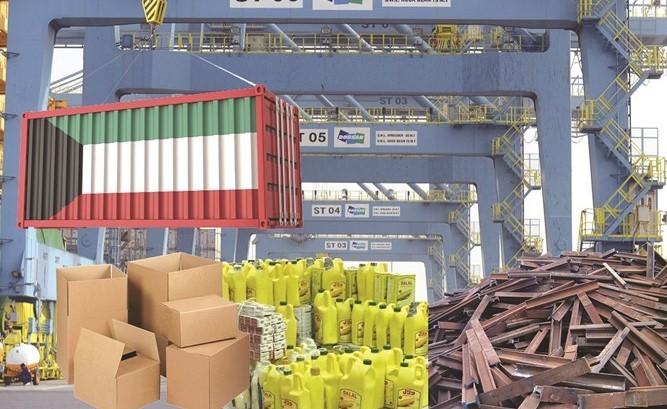25/12/2023
25/12/2023

KUWAIT CITY, Dec 25: Amid escalating events in the Red Sea, where the "Houthi" militia has carried out attacks in the Bab al-Mandab Strait area, specialists have assured the public that Kuwait's commodity supplies, particularly food, remain safe. The state's proactive plans and strategic stockpiles, supported by collaborative efforts with civil authorities and cooperative societies, continue to ensure the steady flow of essential goods without disruption.
Mishal Al-Mana, the head of the Consumer Protection Association, emphasized that Kuwait's basic commodities are secure, and supplies have no immediate impact. The strategic food stock, covering a year's worth, is a testament to the government's commitment to stability and efficiency in meeting the needs of citizens and residents.
Three key pillars underpin Kuwait's approach to securing commodity supplies:
- Proactive Plans: The government and concerned authorities employ proactive plans to anticipate and address potential risks, ensuring the continued availability of food supplies.
- Strategic Stock: Kuwait relies on maintaining a strategic stockpile to meet the needs of its population, safeguarding against disruptions in supply chains and contributing to market stability.
- Annual Deals: Kuwait's strategy involves entering into annual deals rather than continuous year-round purchases, ensuring a consistent and planned flow of commodities.
Abdullah Al-Baijan, the head of the Kuwait Food Federation, echoed the assurance that food supplies are stable and unaffected by Red Sea events. Drawing parallels with the successful handling of the previous crisis, the COVID-19 pandemic, Al-Baijan emphasized the importance of good management with supply sources to ensure continuity in the face of potential challenges.
Notably, 60% of Kuwait's merchandise imports come from Asian countries, insulating them from the events in the Red Sea. Al-Baijan urged preventive measures, including expanding food stores and alternative supply lines, to mitigate the ongoing events' potential short- and medium-term repercussions.
Foreign trade data for the first half of 2023 reveal that Kuwait imported goods worth approximately 5.8 billion dinars, with 60% coming from Asian countries, 24% from European countries, and 10% from North American countries. Sea transport dominates, accounting for 91% of goods transported to Kuwait, highlighting the nation's reliance on maritime channels for imports. As Kuwait navigates these uncertain times, a focus on proactive planning and collaboration remains crucial to safeguarding its commodity supplies.


